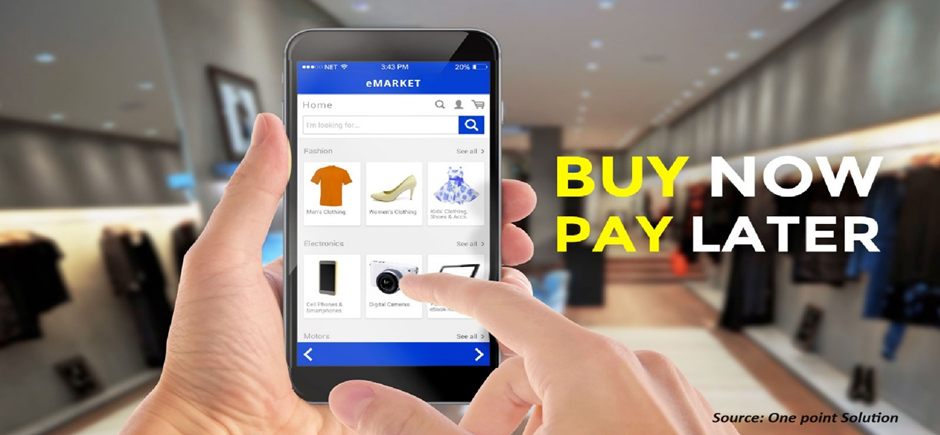
UK Mobile Payment Market by Age (Generation Z, Millennials, Generation X, and Baby Boomers), by Payment Type (Proximity and Remote), and by Application (Money Transfers, Merchandise Purchases, Bill Payments, Airtime Top-ups, Ticketing, and Others) – Opportunity Analysis and Industry Forecast, 2024–2030
Industry: ICT & Media | Publish Date: 01-Sep-2024 | No of Pages: 111 | No. of Tables: 79 | No. of Figures: 44 | Format: PDF | Report Code : IC2474
UK Mobile Payment Market Overview
The UK Mobile Payment Market size was valued at USD 1.58 billion in 2023, and is predicted to reach USD 6.96 billion by 2030, with a CAGR of 22.3% from 2024 to 2030.The mobile payment system, also referred to as money transfer, mobile money, m-payments, electronic payments, and digital payments, enables financial transactions using mobile devices such as smartphones, tablets, and wearables. These transactions are facilitated through mobile apps or various methods such as proximity and remote transactions. Mobile payment systems include various types such as mobile wallets, mobile banking apps, and online payment services such as PayPal, Venmo, and Google Pay.
Utilizing technologies such as SMS, near-field communication (NFC), quick response (QR) codes, and others, these systems ensure smooth transactions while employing robust security measures including encryption and biometric authentication to protect personal and financial data. Appreciated for their convenience, speed, security, and integration with other financial tools, mobile payment systems witness widespread adoption. Moreover, users can configure payment apps to automatically settle bills, such as utility or credit card bills, ensuring efficient financial management and preventing late payments.
Rising Fintech and Digital Banking Services Drives the UK Mobile Payment Market
The ascent of fintech and the digital banking sector plays a pivotal role in propelling the UK mobile payment market expansion. Fintech breakthroughs and digital banking services offer streamlined and user-centric financial solutions that are easily accessible through mobile devices.
These advancements democratize financial services, granting consumers the autonomy to manage their finances, execute payments, and conduct transactions conveniently from their smartphones. The integration of mobile payment functionalities within fintech applications and digital banking platforms enriches user experience by providing seamless access to payment options and account management features.
Furthermore, fintech enterprises and digital banks frequently lead the way in pioneering innovative payment technologies, including peer-to-peer transfers, digital wallets, and contactless payments, thereby fostering adoption and influencing industry standards. As consumers progressively adopt fintech and digital banking solutions, the mobile payment market expands, presenting an array of choices, enhancing efficiency, and bolstering accessibility in the digital economy.
Shift Towards Cashless Societies Propels the UK Mobile Payment Market
The transition towards cashless societies acts as a pivotal catalyst for expansion in the mobile payment industry in the country. As societies worldwide increasingly embrace digitalization and convenience, cashless payments have emerged as the preferred method for transactions.
Mobile payment solutions provide consumers and businesses with a seamless and efficient alternative to cash, facilitating secure and contactless transactions using smartphones or other mobile devices. The convenience, speed, and hygiene benefits of cashless payments have been particularly emphasized amid global events such as the COVID-19 pandemic, further driving adoption.
Additionally, governments and regulatory bodies actively promote cashless economies to address issues such as tax evasion, money laundering, and the underground economy. Consequently, the growing acceptance and adoption of cashless payment methods propel growth for mobile payment market solutions, offering opportunities for innovation, expansion, and financial inclusion.
Resistance from Traditional Financial Institutions Restrains the Market Growth
The resistance from traditional financial institutions poses a significant barrier to the UK mobile payment market growth. Established banks and financial entities may perceive mobile payment solutions as disruptive to their existing business models, leading to reluctance in supporting or promoting these innovative technologies. This resistance arises from concerns about potential revenue cannibalization, regulatory complexities, and the perceived threat of losing control over payment infrastructures.
Consequently, traditional financial institutions may hesitate to invest in mobile payment initiatives or collaborate with fintech startups and mobile payment providers, hindering the development and adoption of innovative payment solutions. Overcoming this resistance necessitates collaboration, regulatory alignment, and education to demonstrate the benefits of mobile payments for both financial institutions and consumers, thereby unlocking the full potential of the UK mobile payment market.
The Rise of Voice-Activated Mobile Payments Creates Opportunities in the UK Mobile Payment Market
The emergence of voice-activated mobile payments signals exciting prospects in the UK mobile payment market. These systems empower users to initiate transactions and conduct banking activities using natural language commands, harnessing virtual assistants such as Amazon Alexa or Google Assistant.
This technology brings unparalleled convenience, enabling users to make payments hands-free and while on the move. Voice-activated mobile payments streamline the payment process, enriching user experience and providing greater accessibility for individuals with disabilities or limited mobility.
Moreover, they unlock fresh avenues for integration with smart home devices, wearable technology, and IoT ecosystems, broadening the scope and usefulness of mobile payment solutions. With ongoing advancements in voice technology, the incorporation of voice-activated mobile payments into everyday routines presents promising opportunities for innovation, distinction, and market expansion.
Competitive Landscape
Various market players operating in the UK mobile payment industry include Alphabet, Inc. (Google), Alibaba Group Holdings Limited, Amazon.com, Inc., Apple, Inc., PayPal Holdings, Inc., Visa, Inc., Tencent Holdings Limited (WeChat), MasterCard International, Inc., Samsung Electronics Co. Ltd., Block, Inc., and others. These key players have adopted various strategies to strengthen their market share.
UK Mobile Payment Market Key Segments
By Age
-
Generation Z
-
Millennials
-
Generation X
-
Baby Boomers
By Payment Type
-
Proximity
-
Near-Field Communication (NFC)
-
Quick Response (QR) Code Payments
-
-
Remote
-
Internet Payments
-
SMS/Direct Carrier Billing
-
By Application
-
Money Transfers
-
Merchandise Purchases
-
Bill Payments
-
Airtime Top-ups
-
Ticketing
-
Others
REPORT SCOPE AND SEGMENTATION:
|
Parameters |
Details |
|
Market Size in 2023 |
USD 1.58 Billion |
|
Revenue Forecast in 2030 |
USD 6.96 Billion |
|
Growth Rate |
CAGR of 22.3% from 2024 to 2030 |
|
Analysis Period |
2023–2030 |
|
Base Year Considered |
2023 |
|
Forecast Period |
2024–2030 |
|
Market Size Estimation |
Billion (USD) |
|
Growth Factors |
|
|
Companies Profiled |
10 |
|
Market Share |
Available for 10 companies |
|
Customization Scope |
Free customization (equivalent up to 80 working hours of analysts) after purchase. Addition or alteration to country, regional, and segment scope. |
|
Pricing and Purchase Options |
Avail customized purchase options to meet your exact research needs. |
KEY PLAYERS
-
Alphabet, Inc. (Google)
-
Alibaba Group Holdings Limited
-
Amazon.com, Inc.
-
Apple, Inc.
-
PayPal Holdings, Inc.
-
Visa, Inc.
-
Tencent Holdings Limited (WeChat)
-
MasterCard International, Inc.
-
Samsung Electronics Co. Ltd.
-
Block, Inc.




 Speak to Our Analyst
Speak to Our Analyst

































